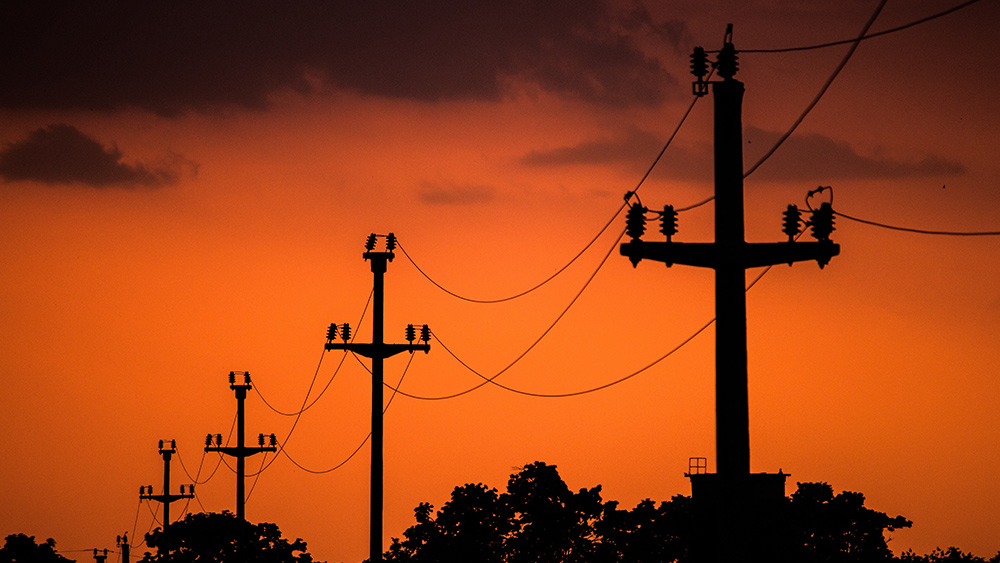Get ready for sky-high electricity bills as Green New Deal threatens to increase energy costs by 2,800%
The phase-out of earth-based fuels like oil and gas is in full swing. And in the not-too-distant future, average American households could end up paying energy bills that are 2,800 percent higher than they are currently.
In order for wind and solar power generation to keep an industrialized economy grinding, these technologies require a lot of backup battery power – backup battery power that costs a fortune at upwards of trillions of dollars.
David Wojick, writing for Watts Up with That, calculated that the average household electricity bill under a fully implemented Green New Deal paradigm would reach $52,500. Here is the process he used:
1) The amount of electricity storage capacity that would be needed to replace today’s earth-based fuel electricity generation systems nationwide is about 250,000 MWh (megawatt hours).
2) At a cost of $300,000 per MWh of storage capacity, the cost of purchasing enough batteries for this would be $75 trillion. Spread out over 20 years, this amounts to $3.75 trillion annually.
3) Right now, U.S. households use a collective 1.5 trillion KWh (kilowatt hours) of energy annually. Each individual household uses about 10,500 KWh per year at a cost of roughly $2.50 per KWh.
4) Extrapolated to scale, the average cost per year just to store enough “clean” and “green” energy per household is $26,250 – compare this to the current annual electricity bill average of $1,800 per household.
5) On average, annual electricity bills per household will increase at least 14-fold if the Green New Deal is fully implemented as planned.
6) When you factor in electrification of both transportation and gas heat, the cost could increase 28-fold, resulting in an economic collapse of epic proportions.
“In short everyone’s electricity bill will be 14 times greater than today if wind and solar replace today’s fossil fuel powered generation under the Green New Deal,” warns Wojick.
“This will be true of industrial and commercial consumers as well which will drive up the cost of virtually all goods and services. This impact is truly inflationary.”
(Related: The climate fanatics behind the Green New Deal say that the best way to persuade voters to support more green tyranny is to lie to them.)
Green revolution leading to economic collapse
While these are merely rough estimates, Wojick did a pretty good job of revealing the massively detrimental impact the “green” energy revolution is having, and will have, on American families.
One silver lining is that the cost of storage batteries is decreasing all the time. The bad news is that those costs will still have to decrease by a whole lot more – likely to impossibly low levels – in order for “green” energy to stand a chance at working the way its proponents claim it will.
Keep in mind as well that Wojick’s estimates assume that storage batteries are all filled to 100 percent and drained down to zero every time they are used, which is an impossibility, practically speaking.
“If it is actually 10-90 or 20-80 then a great deal more storage capacity will be needed,” Wojick writes.
“Then too the storage requirement can be reduced by overbuilding the wind and solar generating capacity. However this reduction is limited, I have been told to 180 million MWh, because there is still no solar at night and no wind when it does not blow hard enough. But it is unlikely that these giant batteries have an average full performance life of 20 years.”
Another thing Wojick did not look at is the enormous cost of building and maintaining wind and solar generation facilities, nor does it calculate the added costs of having to borrow trillions of dollars in order to make the scheme even have an appearance of legitimacy.
“The basic point is that the Green New Deal is impossibly expensive,” Wojick says. “There is no cure for intermittency.”
The climate cult is a mental illness cult. Learn more at Climate.news.
Sources for this article include:
WattsUpWithThat.com
NaturalNews.com
Read full article here


